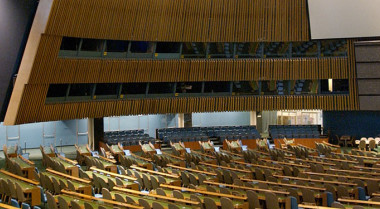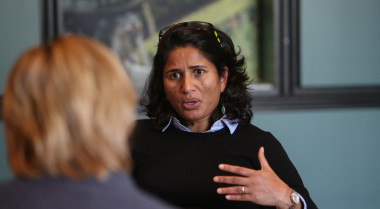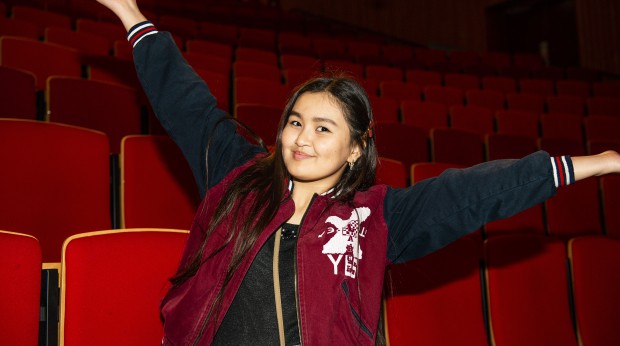
New UN Secretary General outlines his strategy for sustaining peace: Prevention is in everyone’s interest
In his first public speech to the Security Council, the new Secretary General of the UN Antonio Guterres outlined his strategy in the area of peace and security. The occasion was an open debate arranged by Sweden, a new member of the council and a strong proponent of the conflict prevention agenda at the UN. Mr. Guterres cemented the suggestion he also ran his campaign on; that prevention conflict and sustaining peace must be at the center of all of the UN's activities.
Reforms to foster a "whole new approach"
The Secretary General said that the unanimous adoptions of the resolutions on sustaining peace and Agenda 2030 on sustainable development demonstrate that there is strong support for preventing conflict and promised to take a "whole new approach" integrating UN's work for human rights and inclusive development.
Mr Guterres, who during his first week at the helm of the UN received praise for delivering on his promise to appoint more women to senior management positions, pointed to the newly created position of a senior advisor on policy as a person that would be tasked with designing a more coherent UN.
In this new role, Guterres explained, Ms. Kyung-wha Kang of the Republic of Korea, will be map UN's capacities on prevention and bring them together in an integrated platform for early action. Simultaneously, Guterres also plan to reform UN's development system and said that humanitarian and development agencies must work together to strengthen resilience in countries affected by fragility.
Mobilising everyone for a surge for peace
However, the main responsibility for preventing conflicts must still be born by the member states, the new Secretary General stressed, adding that everyone must be mobilised for a new surge for peace and preventive diplomacy; from governments to religious and traditional authorities, civil society and regional and subregional organisation. As he has done throughout his campaign, Mr. Guterres emphasised that women and girls must be fully empowered to participate in all efforts to create peace and development, arguing that peace has the best chance to succeed when gender equality is interwoven in the fabric of society.
He also noted that more and more societies today are becoming multi ethnic, multi political and multicultural - and encouraged member states to invest in inclusivity to make people reap the benefits of diversity rather than seeing diversity as a threat. "Everyone must feel respected and belong" to secure peace, he said, and added that civil society has an important role to play in raising alarm when this respect is threatened or lost," in a veiled reference to the rise of autocratic regimes cracking down on fundamental freedoms and political oppositions.
Opportunities for prevention lost due to mistrust among member states
Addressing a full UN Security Council hall, the UN's new chief seemed to speak directly to the permanent five members of the council when he said that mistrust among member states had meant that important opportunities for prevention had gone lost. However, prevention is in everyone's interest, he argued, and should not be seen as a threat to sovereignty. Strong, sovereign states that care for the best of their populations have an interest in avoiding the enormous cost in terms of both money, resources and human lives that governments and populations pay for letting conflicts escalate.
"War is never inevitable"
With this appeal to member states to coalesce around the shared interest in avoiding violent conflict, Mr. Guterres ended his speech stating that war is never inevitable. Instead, he proposed, war stems from exclusion, discrimination, marginalisation, and a political choice to resort to violence rather than dialogue. To prevent this, "we must restore trust between governments and citizens and within member states", the Secretary General said.
While stating that prevention must be not just a priority, but the priority of all the UN does, Mr. Guterres also admitted that the effectiveness of measures like early warning and early action depend on trust between member states and the UN. And in a time where the rule-based international order, which also rely on trust in institutions and laws, according to Mr. Guterres is "under great threat", he pledged to help foster this trust in and within the UN. "It would be naive to say that 2017 will be a year of peace", he said, "but it is our obligation to make it a year for peace."


